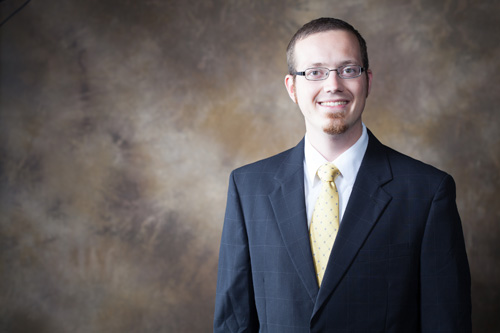David Jensen, the newest addition to the mechanical engineering faculty, understands that nothing is perfect. Every mechanical system, from spacecraft to nuclear power plants, has the potential to fail in many different and dangerous ways. Jensen’s goal is to predict these failures as early as possible in the design process of these systems, so that safeguards and solutions can be incorporated from the beginning.
In one of his research projects, Jensen is helping Finland’s Nuclear Regulatory Department test different failure scenarios for a boiling water nuclear reactor. The design for the reactor is still in the early stages, and Jensen explained that he uses qualitative physics to figure out what failures could occur and find solutions that can be incorporated into the design.
Qualitative physics is a method of calculating relationships between variables using simple representations rather than mathematics. For example, the temperature of water can be described qualitatively as “low,” “high” or “boiling,” and the change in the temperature can be described as “increasing” or “decreasing.” Using qualitative equations, engineers can study real-world relationships between devices or processes that would be too complex to model using numerical equations.
Using these qualitative equations, Jensen creates a design stage behavioral simulation. With this simulation he can model and test many different possible scenarios. The results of these tests provide designers with a sense of how well their system would handle failures. Jensen explained that “you can see the functional effect of different combinations of problems.” While Jensen’s current work focuses on electrical and mechanical problems, he hopes to eventually model and incorporate human behavior and software failures into his research.
Because Jensen's models focus on a general view of a system, rather than the details, they have broad applications. His nuclear reactor model could be used to evaluate potential failures in the U.S. power grid, for example.
Jensen, who is an assistant professor, comes to Arkansas from Eugene, Ore. He earned a Ph.D., M.S. and B.S. in mechanical engineering from Oregon State University. Jensen has collaborated extensively with researchers in industry and academia to perform cutting edge research in model-based prediction of system failure behavior and systems validation. His research has been funded through government agencies such as NASA, DARPA and the Air Force Office of Scientific Research.
“I like the opportunities here,” said Jensen. “The
University of Arkansas has been very supportive in helping me start my
research.” He added that his family is looking forward to life in Northwest
Arkansas.
Contacts
Camilla Medders, director of communications
College of Engineering
479-575-5697, camillam@uark.edu
